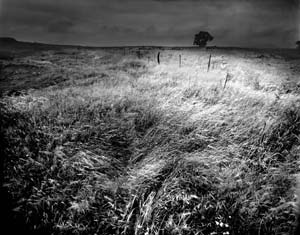
|
HUSH
 If you want someone to be quiet, if you want them to listen, you raise your finger to your lips
and say, "Shh!"
If you want someone to be quiet, if you want them to listen, you raise your finger to your lips
and say, "Shh!"
The sound of air flowing over lips is the universal sign to be still, to be quiet. The english word hush is connected with this sound. The same sound appears in the name of our month - Cheshvan. The root of the word cheshvan is chash, which in hebrew means "quiet." The very name of the month commands us to be still, to be quiet. What is this stillness that is Cheshvan? It is two months since the beginning of elul. The shofar blast that begins the month of elul signals the onset of the gathering storm. A cataclysm is about to be unleashed. And on Rosh haShana the entire world stands at attention in front of the Master. The storm has broken; a storm in the cosmos and a storm in the inner world of the heart. In the cosmos, worldshattering events are taking place. All the dwellers of earth pass before the divine Throne like sheep. nations are judged. fortunes are made and lost. earthquakes and hurricanes are prepared and canceled. And in the inner world, the heart of man is pierced to the very quick and examined in all-penetrating detail. The inquiry is total. In the end it hinges on a single question: Whose side are you on? Are you like the goat in the Yom Kippur service offered up on the Altar of the living God? Or are you the goat that is sent to Azazel - the goat that represents the denial that lurks in the heart? This goat watches his near twin offered on the holy Altar and thinks, "That idiot! look at him now! Offered up on the Altar, his lifeblood daubed on its corners! But I'm getting away! I'm getting out of here!" his elation, however, is short-lived. In just a short while, he is ignominiously pushed over a cliff, his body torn limb from limb on the jagged rocks. no one gets out of here alive. The question is, how will we use the time that we have? Will we offer our lives to God's eternal Torah, or will we try to fool ourselves into thinking that we can escape mortality and live forever? Will we recognize that life has been given to us to strive for eternity by following the spiritual path, or will we fritter our time away trying to immortalize ourselves through fame or cryogenics? Whichever choice we make - no one gets out of here alive. These are the great storm-tossed moments of truth that we experience during the days of Awe. Then we leave the trappings of our false security and dwell in the sukka under the shade of faith. And after Sukkot, God keeps us close to him for one more day on Shemini Atzeret and then we return to our normal lives. The great storm is over. Israel returns to the solitude of its homes. The month of Cheshvan says to us, "hush! Be still and listen to your heart! listen to the quiet after the storm. listen to the still, small voice of the soul washed pure by the great storm of Tishrei!" In hebrew the word for the senses is chushim, which is connected to the word chash, "silence." The senses operate in silence. They are the silent recorders of reality. They record in silence and they play back their message in silence. And to decode what our senses tell us when they replay the soul's diary of the month of Tishrei, we must listen to the sounds of their silence. Thus, even though Cheshvan is devoid of festivals, it is one of the most important times of the year. It is a period when we can reflect on what we have learned during the days of Awe. In the tranquility of our homes, in the hush of Cheshvan, we can reflect on what those days taught us. We can look at our lives through the wistful eyes of autumn. As the leaves fall, we reflect on how transitory is our brief walk on this planet. how much have we made of that most precious gift called time? AUTUMN IS A BEAUTIFUL EVENING
Autumn is a beautiful evening, falling yards of ochre tulle, all that remains of the train of Summer as she rounds the bend and is no more. the Golden Hour darkens to a deep flame red. the time of dwelling together is past. and each of Us must take our leave back to a winter solitude. More articles available at Ohr Somayach's website. |